|
Growing up, I experienced the excitement of living in a predominantly male household. My brothers and I would regularly tap into some wellspring of energy within ourselves and cause all sorts of trouble for my poor mother to sort out if we somehow didn’t already exhaust ourselves. Now that we’re older and (hopefully) more mature, I find myself wondering 1) where did that incredible energy go? and 2) how did my mother ever put up with us? It certainly takes a special type of person to remain steadfastly patient and loving in the face of such chaos; mothers are a wonderful example, but what about those who are not parents (and would not be obligated to do so) who look after the young? St. John Bosco, whose feast we celebrate today, is similarly venerated for dedicating his life to the betterment and education of street urchins, juvenile delinquents, and other disadvantaged youth. Born in Italy, “Don Bosco” was first the chaplain of a girls’ boarding school in Turin called the Rifugio (“Refuge”). His other ministries included visiting prisoners, teaching catechesis, and assisting at the country parishes. While visiting the prisons, Don Bosco was troubled to see so many adolescent boys and became determined to prevent them from ending up there. Finding traditional methods of parish ministry inefficient due to the urbanization-driven influx of migrants, Don Bosco developed another form of apostolate: meeting the boys wherever they were in life—be it offices, shops, or marketplaces. While society might have looked the other way or written off these little ones, Don Bosco would unceasingly offer help to those he encountered throughout his ministry. I could focus on the well-documented efforts of the saint’s ministry, such as the establishment of permanent youth centers (which he called oratorio), contracting dignified jobs for the unemployed and obtaining fair conditions for those who held jobs, caring for the boys’ health, or instructing those willing to study after the work day, but I’d like to dwell on the special aspect of his numerous dreams which helped to reveal God’s will for his life. In one particularly, the Blessed Mother led Don Bosco into a beautiful garden, bidding him to pass through a rose arbor after removing his shoes. Shortly after doing so, his feet were cut and bleeding from the thorns of the roses on the path he was taking, yet he refused to turn around. Observers in the dream remarked, “How lucky Don John is! His path is forever strewn with roses! He hasn’t a worry in the world. No troubles at all!” They attempted to follow, but many who had been expecting an easy journey turned back—only some stayed with him. Finally, after successfully enduring the journey, he found another incredible garden where a cool breeze soothed his torn skin and healed his wounds. I agree with Don Bosco’s interpretation: the path was his mission, the roses were his charity to the boys, and the thorns were the distractions and frustrations that obstructed his efforts. The message of the dream was clear to the saint: keep going, do not lose faith in God or His calling! For Don Bosco, challenges would always remain, such as financing. Don Bosco kept going and did not lose faith in God. His mother, a 59-year old poor peasant, even left her house and sold her jewelry to become a mother (“Mamma Margherita”) to those her son took in, eventually numbering 800! Acts of faith such as these reflect the fact that human works are very limited; it is God who is able to do the impossible. One can see this also evident in the efforts of St. Mother Teresa in the streets of Calcutta, the witness of the shepherd children who saw our Lady at Fatima, or the strength and determination of Mother Angelica in the founding of the Eternal Word Television Network. In surrendering ourselves to be like “a little pencil in the hand of a writing God,” as Mother Teresa referenced in an interview, and not worrying about human measures of success, we can follow the example of saints like Don Bosco who effected great change in both society and the individual lives of those they served. The saints never worked for their own sake, but simply did the work they were guided to do by Providence. To echo the words of Don Bosco, “I have done nothing by myself. It is the Virgin Mary who has done everything.”
0 Comments
At some point during my time as a college student, I encountered the great saint and medieval theologian St. Thomas Aquinas (1225-1274), and began to realize just how truly important and vast was his intellectual impact in history. As a witness to the profound and enduring quality of Thomas’ theological insight and teaching, the Catholic Church honors him with the title “Doctor of the Church.” Thomas certainly spent much of his life in a classroom teaching and debating on the most relevant questions of his day. But when it came to his primary vocation as a Christian, the soft-spoken saint would be quick to point out that he was first and foremost a student. The word disciple literally means “learner” or “student.” In the Bible, a disciple is, “A student or follower who emulates the example set by a master and seeks to identify with the master’s teachings.” (Catholic Bible Dictionary, ed. Scott Hahn) For Thomas, discipleship meant being an entirely devoted student of Jesus Christ. One of Thomas’ theological principles was that everything Jesus said and did was meant for our imitation and instruction. In the time of Jesus, a disciple did not just learn from, but learned to be like their teacher. We see this, for example, at the Sermon on the Mount, which is an extended lesson about a radically new vision for life received at the feet of their teacher (“Rabbi”), Jesus. Today, the Church’s emphasis on the New Evangelization to make and grow as disciples also means we are to become in every way students of Jesus. Here are three important ways Aquinas modeled being a student of Jesus, a disciple, worthy of our imitation. A Student of Scripture For Thomas, Sacred Scripture makes known “that heart of Christ” (see CCC 112), and we acquire that heart gradually by reading and studying the Bible. In addition to composing many commentaries on individual books of the Bible, all of Thomas’ writings demonstrate a life soaked in a love and knowledge of Holy Scripture. Thomas realized the impossibility of growing as disciples of Jesus apart from familiarity with the living Word of God. A Student of Prayer Even with a multitude of followers and demands, Jesus was frequently found in personal prayer with the Father. Similarly, as prolific a writer as Thomas was, Thomas never sacrificed his time of prayer and contemplation for the sake of work or greater productivity. As a result, aside from his dense technical writings in theology, Thomas composed captivating prayers that the Church uses in liturgy and devotions even today. Thomas loved to pray through song, and among his most well known prayers include the famous Eucharistic hymns “O Salutaris,” “Tantum Ergo,” and “Adoro Te Devote.” A Student of Truth Jesus is the Truth (John 14:6). In a culture saturated with opinion and often biased news, we can learn from Thomas’ unceasing search for truth. A love of the truth compelled Thomas to devote himself to understanding the world around him (even where he disagreed), to be slow to judge, quick to learn, but steadfast in his convictions and trust in Jesus. Whether you are in school or beyond, Thomas models what it means for a disciple to seek the truth. That could mean doing more research about our opinions, being more willing to have our perspective challenged, or just trying to learn something new every day. Thomas even has a great Prayer for Students that we can all apply to whatever situation Jesus is calling us to keep learning about. To learn more about prayer, please click here. "Remember that the Christian life is one of action; not of speech and daydreams. Let there be few words and many deeds, and let them be done well." – St. Vincent Pallotti Blessings to all as we are about to celebrate the feast of St. Vincent Pallotti on January 22nd! Some may ask, “Who is that?” I am glad that you asked. St. Vincent Pallotti and his charism are the reason why the Catholic Apostolate Center exists. He was a priest of the Diocese of Rome in the first half of the nineteenth century. His ministry spanned the poor to popes. It did not matter what a person was, but who the person was, an image and likeness of God, the Infinite Love. He saw all people as gifted by God with talents that were meant to be shared. On January 9, 1835, St. Vincent Pallotti was inspired to found the Union of Catholic Apostolate, a collaborative association of lay people, religious, and clergy, who were called to assist in the missionary efforts of the Church through all apostolic methods and means, “revive, maintain, and increase the faith” of Catholics, and be an “institution of universal charity”. Over time, a community of priests and brothers and communities of sisters developed as well. Members of the Union of Catholic Apostolate are now in over 50 countries around the world. The Catholic Apostolate Center, a ministry of Pallotti’s community of priests and brothers, is a 21st century expression of his charism that works to revive faith, rekindle charity, and form apostles. Looking the other way when others were in need was not possible for Pallotti and his life calls all, particularly Catholics, to be more than simply passive participants in the Faith. Instead, we are called to be apostles, sent by Jesus Christ out into the world to spread the Gospel and charitably bring healing and consolation in the midst of brokenness and suffering. In many ways, it is fitting that most years (although, this year on January 27th) those who March for Life in the streets of Washington, D.C. are doing so on his feast day. The marchers not only give witness, but also voice to those who are voiceless, unborn children. The most vulnerable and in need were closest to the heart of St. Vincent Pallotti as he and his companions went into the streets of Rome to care for them day after day and night after night. On January 22, 1850, he died from a respiratory illness because he had braved the elements to continue his work after giving away his cloak to a poor elderly woman on a cold, rainy night. St. Vincent Pallotti understood well what Pope Francis teaches us today: “Jesus, the evangelizer par excellence and the Gospel in person, identifies especially with the little ones (cf. Mt 25:40). This reminds us Christians that we are called to care for the vulnerable of the earth” (Evangelii Gaudium, n. 209) We invite you to learn more about St. Vincent by downloading our Pallotti App, visiting our new Pallotti Portal, viewing this new video, or listening to this new podcast. May the Charity of Christ urge us on!
As we remember Rev. Martin Luther King Jr. on this American federal holiday, I invite you to join me in reflecting on his dream for the United States and for the world. Rev. King fought for equality and justice in the United States using nonviolence. He helped empower American society to look past differences and come together through love by leading people in prayer and using words paired with non-violent actions. As a Baptist minister, Rev. King upheld Christian ideals and spoke to the hearts of all those facing injustice. He personally felt and lived through discrimination and had his share of fear and uncertainty. Yet through these hardships, he led others to see truth in justice and civil rights by organizing non-violent marches and protests, and by preaching unity.
Much of what Rev. King said through his words and his non-violent actions can be compared to the teachings of Christ. In the Gospel of John, for example, Peter tries to defend Jesus from a large crowd trying to arrest him in the Garden of Gethsemane. Jesus tells Peter to “put the sword in its sheath” and in Matthew’s Gospel adds, “all those who take up the sword shall perish by the sword.” In doing so, Christ tells Peter that fighting back with the same means as the enemy will get him nowhere. Earlier in Matthew’s Gospel, while he was preaching about the Beatitudes in the Sermon on the Mount, Jesus reminded his disciples, “You have heard that it was said, ‘Love your neighbor and hate your enemy.’ But I tell you, love your enemies and pray for those who persecute you, that you may be children of your Father in heaven” (Matthew 5:43-45). Christ preached forgiveness through love and mercy throughout his ministry and demonstrated this in a powerful way throughout his arrest and Passion. Jesus demonstrated how love can change hearts and save lives. Martin Luther King Jr. imitated this response. His promotion of unity has had powerful repercussions on our society that are still felt to this day. Unfortunately, discrimination in various forms continues. Our next generation sees pain, division, and fear in the news and TV shows, on social media, and even sometimes right outside their doors. However, those who cultivate empathy for others can make Rev. Martin Luther King Jr.’s dream come true today and breathe life into Christ's teachings in the Gospel. So how can you empower the nation with love? How can you teach through your actions how to live out Christian values and Catholic Social Teaching? In what ways can you help bring understanding and empathy to others? I invite you to reflect on the Beatitudes from Jesus’ Sermon on the Mount (Mt. 5:3-10) as a way to embark on this journey toward building peace! “Now when Jesus saw the crowds, he went up on a mountainside and sat down. His disciples came to him, and he began to teach them. He said: 'Blessed are the poor in spirit, for theirs is the kingdom of heaven. Blessed are those who mourn, for they will be comforted. Blessed are the meek, for they will inherit the earth. Blessed are those who hunger and thirst for righteousness, for they will be filled. Blessed are the merciful, for they will be shown mercy. Blessed are the pure in heart, for they will see God. Blessed are the peacemakers, for they will be called children of God. Blessed are those who are persecuted because of righteousness, for theirs is the kingdom of heaven. Blessed are you when people insult you, persecute you and falsely say all kinds of evil against you because of me. Rejoice and be glad, because great is your reward in heaven, for in the same way they persecuted the prophets who were before you.” Please visit our website to learn more about Cultural Diversity, Catholic Social Teaching and Christian Unity. Praying for vocations is an important task we are given as members of the Church, one that is often overlooked or only half-heartedly remembered during National Vocation Awareness Week in November. Yet, our collective failure to significantly pray for and encourage the thoughtful discernment of vocations is one of the bigger problems we face as a Church. It directly affects our ability to carry on the faith to future generations. On top of that, there’s another vocations problem that we face; in fact, there are four of them. We are called to pray not only for priestly vocations, but also those to marriage, consecrated religious life, and the single life. This is something we often forget: there are multiple vocations. When we pray for vocations, are we truly open to whatever God is calling us to do? Are we willing to consider and discern what cross he is asking us to take up, what sacrifices he’s asking us to make as either a priest, religious, spouse, or single person? To be clear, we do have a serious priest shortage on our hands. We should pray for vocations to the priesthood in a particular way. We have far too few men entering our seminaries to sustainably manage the Church we’ve grown. Too few have taken up the mantle as more and more priests are hitting the ever-increasing age of retirement. Too many parishes have been consolidated due to the lack of priests. It is "truly right and just" that we pray for more vocations to the priesthood! On the other hand, if we are going to pray for vocations, we should also pray for a proper understanding of all four. I often hear of my peers being asked when they’re going to "settle down and have some kids." If each of us has his or her own particular calling, shouldn’t we encourage one another to earnestly discern our respective vocations? Shouldn’t parents encourage their sons and daughters to look at the possibility of marriage, priesthood, religious life, and single life as equally viable answers to God's call? Or is the expectation that they get married and give their parents grandchildren? “God, please inspire more young men to answer the call … but, please, not MY son!” This doesn't discount the great need to shift our view on the vocational nature of marriage. If we don’t, we risk: a) overly romanticizing marriage and b) placing the priesthood and religious life in an ivory tower, reserved only for the most noble and selfless among us. And of course, most people are ultimately called to marriage; it's necessary in order to keep humanity—and the Church—alive through the ages. But we desperately need more holy marriages, more vocational marriages. Not only do they contribute to the work of sanctifying the secular world, but they are also directly responsible for creating the next generations of priests and religious. Without an increase in vocations to marriage, our shortage of religious vocations will continue as well. And let’s not forget about the single life. Some people do, in fact, have a calling to serve the Church and sanctify the world through a life of lay celibacy. That calling is of equal importance to the other three; such individuals have a unique capacity for service that the other three vocations just don’t allow. The celibate single life, when discerned well, is an incredibly life-giving vocation. We need more vocations, period. So when we pray “for an increase in vocations,” let’s pray for an increase in all of them: vocations to the priesthood, religious life, single life, and marriage. The truth is that all four types of vocation have distinct strengths that contribute to the Church's mission of sanctifying the world. Most importantly, when we pray for vocations, do we acknowledge that we ourselves are the answer to those prayers? Like it or not, we are. We pray to God to end hunger, but we are the ones he's sent to end that hunger. We pray to God for world peace, but we are the ones he's sent to bring about that peace. We pray to God for more vocations to the priesthood, but we are the ones he's sent to encourage (and answer) them. When we pray for vocations let us also pray that we come to know our own and can fulfil it with a joyful heart. May our Blessed Mother encourage us to faithfully discern how her Son calls us to serve each and every day. Our Lady, Seat of Wisdom, pray for us!
I distinctly remember at the Baptisms of both of my goddaughters the moment where the priest poured water over their heads and uttered the words: “I baptize you in the name of the Father, and of the Son, and of the Holy Spirit.” On both occasions, I choked back tears, in awe of the reality of spiritual childhood and the life of grace that is ours for the taking. The Church places the feast of the Baptism of our Lord precisely at the end of the Christmas season – the same joy that was found in Bethlehem as God became a baby is experienced a few decades later as John the Baptist baptizes his cousin in the Jordan River. The Gospel of Matthew tells us, “a voice came from the heavens, saying, ‘This is my beloved Son, with whom I am well pleased.’" Pope Emeritus Benedict, in his 2013 homily on the Baptism of the Lord elaborates on this and says, “The heavens are also opened above your children and God says: these are my children, children in whom I am well pleased. Inserted into this relationship and liberated from original sin, they become living members of the one body that is the Church and are enabled to live their vocation to holiness in fullness, so as to be able to inherit eternal life, obtained for us by Jesus’ Resurrection.” As Catholics, we believe that Baptism leaves an indelible mark on our soul – that we are really, truly changed the moment the water is poured over our heads and those sacred words are said. Not only are we freed from original sin, we are forever claimed for Christ and made beloved sons and daughters of God the most high. To be baptized is not just something that happens when we are a baby, it is a promise that is to be lived each and every day, and a call that requires a response from us. What does that response look like? A life lived in and for Christ should change us, our hearts, and those around us for the better. Our daily actions should reflect our Christian identities - from the way we treat others, to constantly seeking the Lord in prayer - Baptism is a commitment to a way of life. It’s also a commitment to community – a commitment to showing up through life’s ups and downs for our brothers and sisters in Christ. It’s amazing to think about – through our Baptism, we become living members of the one body that is the Church. In essence, we are promised at our Baptism that we will never, ever walk alone. As members of the Body of Christ, we can continually turn to each other for friendship and support and the Church for the fullness of the sacramental life. This feast day reminds us that our most important identity is always as beloved sons and daughters – He has claimed, chosen, and called each one of us. Just as I experienced unspeakable joy at my sweet goddaughters Baptisms, our Father in Heaven rejoices each time we remember that we are first - before anything else - His children. “When Jesus touches a young person’s heart, he or she becomes capable of truly great things.” – Pope Francis The quote above from Pope Francis’s introductory remarks to the pilgrims of World Youth Day 2016 in Krakow, Poland, spoke to over 2 million young adults traveling around the globe to worship together. Pope Francis’ words were heard by people already impacted by the message of Christ, many of whom, I would guess were informed of and formed by the love of God thanks to their Catholic educations. Today we celebrate in the United States the feast of St. John Neumann, Bishop of Philadelphia and founder of the first diocesan school system in the United States. Per the request of many families in his diocese, Bishop Neumann established a diocesan school system so that the children of the diocese could receive Catholic instruction and grow in their faith in a classroom setting. When the school system was established, the diocese of Philadelphia was strapped for resources, so Bishop Neumann invited many different religious communities to the fledgling schools to tend to the rapidly growing immigrant population in the city. His efforts both established the school system and increased the education of the city’s Catholic youth by more than twenty-fold. His diocesan system later served as the model for parochial Catholic education for much of the United States. St. John Neumann understood in the 19th Century - much like Pope Francis does now -that learning about the love of Christ through educational experiences can be an important part of our evangelical mission in this world. If we are all called to share in the evangelizing mission of the Gospel, then we must consider in what ways those gifts and talents can be utilized for the purpose of that mission. For St. John Neumann, Catholic education provided the youth a designated place to come and learn about the Lord and how to live as a Catholic alongside of their other studies. For many youth, their formal catechesis ends with sacramental preparation. Families often don’t understand the importance of continual catechesis throughout a person’s life. So, what can we do to help the youth and young adults in our parishes and communities become more engaged in the faith outside of Catholic schools? How can we support education in non-traditional ways? The answer is particular to your individual situation and universal to the faith we all believe in. Pope Francis has some advice and good examples of experiences that I cannot better summarize myself: “Knowing your enthusiasm for mission, I repeat: mercy always has a youthful face! Because a merciful heart is motivated to move beyond its comfort zone. A merciful heart can go out and meet others; it is ready to embrace everyone. A merciful heart can be a place of refuge for those who are without a home or have lost their home; it can build a home and a family for those forced to emigrate; it knows the meaning of tenderness and compassion. A merciful heart can share its bread with the hungry and welcome refugees and migrants. To say the word ‘mercy’ along with you is to speak of opportunity, future, commitment, trust, openness, hospitality, compassion and dreams.” Is your parish environment one of mercy? Does it foster openness and compassion? Is it willing to embrace people where they are with mercy and hospitality? Is your parish one that is moving outside of its parish borders and going to where it’s a bit uncomfortable and meeting people where they are both physically and spiritually? This is part of the continuing education that we as Catholics must undertake if we are to carry the mission of God to the world. We must constantly learn and relearn the message of Christ as espoused in the Gospels and find ways to practice it in our daily lives. We must learn to love and serve God and to love and serve our neighbor, not just from behind a desk, but in every step we take.
“The first end I propose in our daily work is to do the will of God; secondly, to do it in the manner he wills it; and thirdly to do it because it is his will.” – St. Elizabeth Ann Seton St. Elizabeth Ann Seton (1774-1821), whom we celebrate on January 4, holds the distinction of being the first native-born American saint. Looking back over her great achievements (which include planting the seeds of Catholic education in America and founding a religious order, the Daughters of Charity), what is so special and relevant about Mother Seton is how ordinary her holiness was. From Wall Street to Italy, from Baltimore to rural Emmitsburg, MD, Elizabeth initially lead a privileged life, but always remained humble and grounded. After becoming a widow with five children at only 28 years old, she eventually moved her young family to Emmitsburg and founded a religious order and Catholic school. After the death of her husband, her life was difficult, filled with personal trials and hardships. Yet, through all of it, she demonstrated constant dedication to discerning and pursuing the will of God, or, as she simply called it, “The Will.” In fact, it is through looking at how Elizabeth sought God’s will in the toughest moments of life that we stand to learn the most from her remarkable, yet ordinary life. Embracing Change “God, forgive what I have been, correct what I am, and direct what I shall be.” Humans are creatures of habit, which makes change a scary thing. God certainly called St. Elizabeth to change directions many times over the course of her life, even change her vocation! Elizabeth remained faithful and constant in the moment, while exercising abandonment to the will of God to respond freely as her circumstances changed. Elizabeth demonstrates how we do not become saints overnight, but grow through a day-by-day process of seeking forgiveness and correction every step of the way. Faithfulness in Failure “We know certainly that our God calls us to a holy life. We know that he gives us every grace, every abundant grace; and though we are so weak of ourselves, this grace is able to carry us through every obstacle and difficulty.” Growing up in a prosperous family, Elizabeth enjoyed a happy and fruitful marriage, blessing her with five children. Together with her husband William, to whom she was very much in love, they inherited a successful business on Wall Street. But in a short period of time, all that changed. William’s business failed and went bankrupt. Elizabeth knew success very early on, but learned firsthand the difference between success and faithfulness. As an American saint, Elizabeth powerfully challenges the American tendency to view outward success as an indisputable sign of God’s grace. The experience awakened in Elizabeth a newfound love of the poor, as well as a deeper understanding of the will of God in the midst of many obstacles and difficulties on the path to a holy life. Trust During Tragedy “The accidents of life separate us from our dearest friends, but let us not despair. God is like a looking glass in which souls see each other. The more we are united to Him by love, the nearer we are to those who belong to Him.” Not long after her family went bankrupt, Elizabeth and her husband William moved to Italy, where he became sick and died of Tuberculosis. Elizabeth had already lost her mother and sister early in life. Following her husband’s death, Elizabeth found consolation and hope in visiting and praying in various churches throughout Italy, and felt especially drawn to the Eucharist and the Blessed Virgin Mary even though she was still Episcopalian. Her experience planted seeds for her entrance into the Catholic Church. Many of us, myself included, have experienced tragedy strike at the heart of a family. Elizabeth demonstrates that tragedy, though profoundly shaking, need not lead to despair, but an invitation to rely even more on the will of God. Rejoice Despite Rejection “Afflictions are the steps to heaven.” When news of Elizabeth’s conversion in 1805 became public, many parents removed their children from the school where Elizabeth taught in Baltimore (after returning from Italy) and other friends no longer associated with her. Used to being a well-liked socialite, this experience must have been painful. Despite feelings of rejection, Elizabeth did not become bitter, defensive, or lose her natural joy and generosity. Instead, Elizabeth teaches us that following the will of God opens us to greater love and acceptance of others, not enmity with them. The tragedies and setbacks in Elizabeth’s life were not enough to keep her from trusting the will of God. In her own words, “God has given me a great deal to do, and I have always and hope always to prefer his will to every wish of my own.” Let us approach this new year as St. Elizabeth Ann Seton would have, eager to both desire and do the will of God. Consider starting off 2017 with this novena to St. Elizabeth Ann Seton starting tomorrow, January 4th. Pray in a special way to desire, know, and follow the will of God as St. Elizabeth Ann Seton did. St. Elizabeth Ann Seton, pray for us! |
Details
Archives
July 2024
Categories
All
|
About |
Media |
© COPYRIGHT 2024 | ALL RIGHTS RESERVED

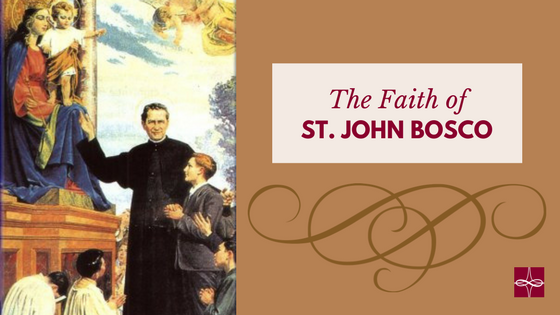

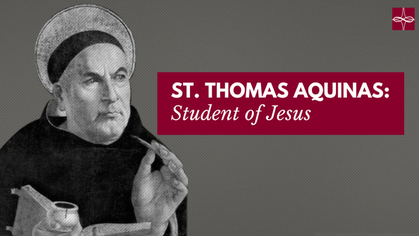
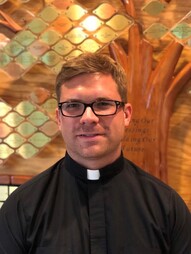

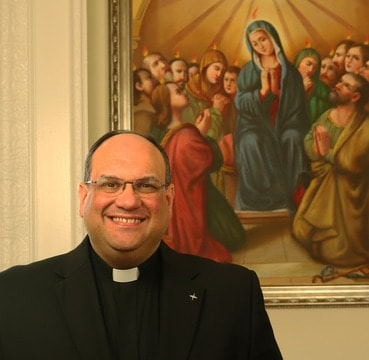
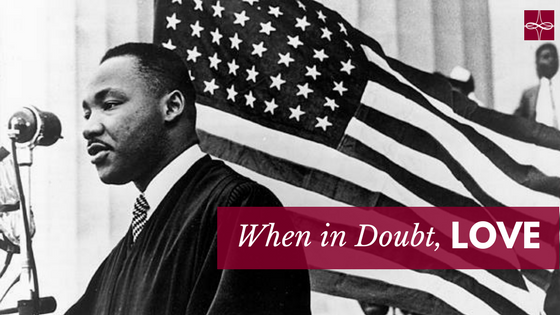

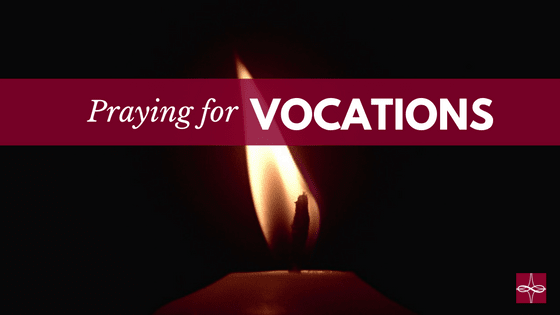

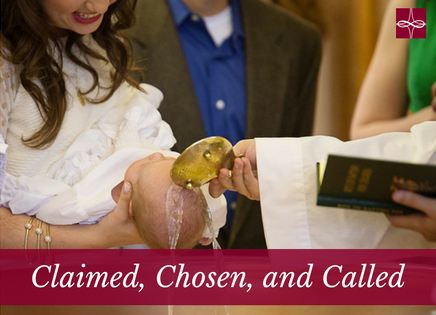

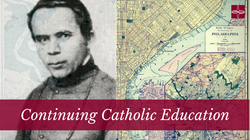

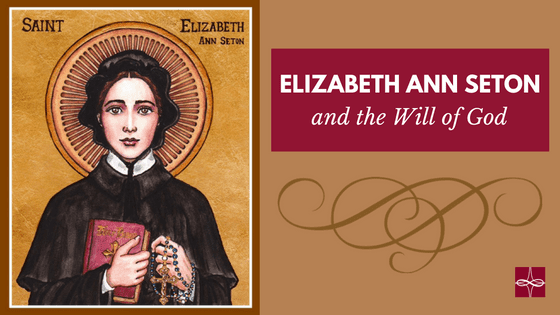

 RSS Feed
RSS Feed